Question And Answer
Publications
Articles, publications, books, tools and multimedia features from the U.S. Institute of Peace provide the latest news, analysis, research findings, practitioner guides and reports, all related to the conflict zones and issues that are at the center of the Institute’s work to prevent and reduce violent conflict.
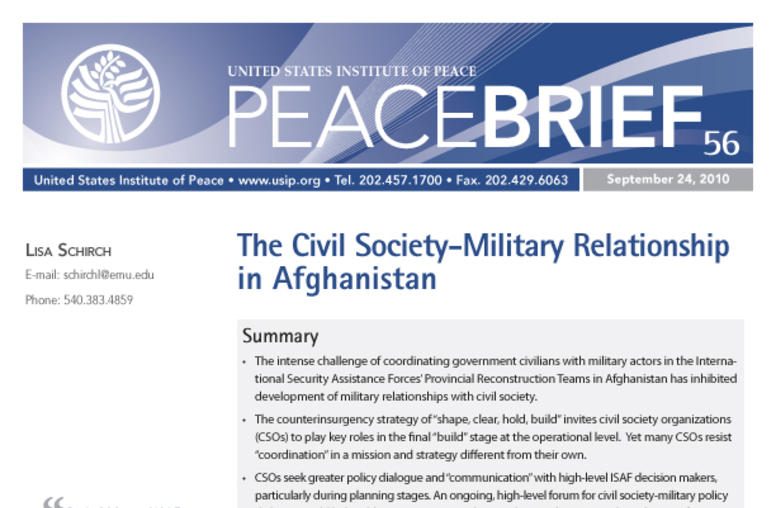
The Civil Society-Military Relationship in Afghanistan
This brief is a report on a one-day civil-military roundtable to identify tensions, tradeoffs and opportunities found in the civil society–military relationship in Afghanistan.
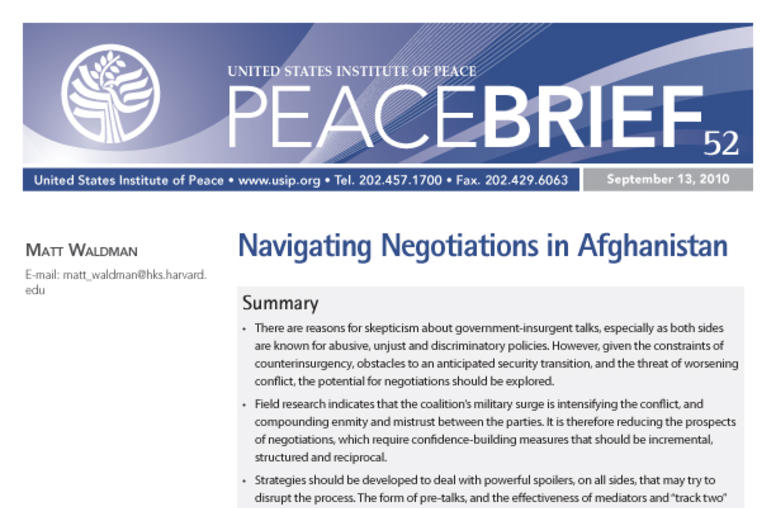
Navigating Negotiations in Afghanistan
This brief is based on six months of field research conducted by Matt Waldman in Afghanistan for a forthcoming USIP report on the drivers of the insurgency and the risks, feasibility and implications of negotiations.
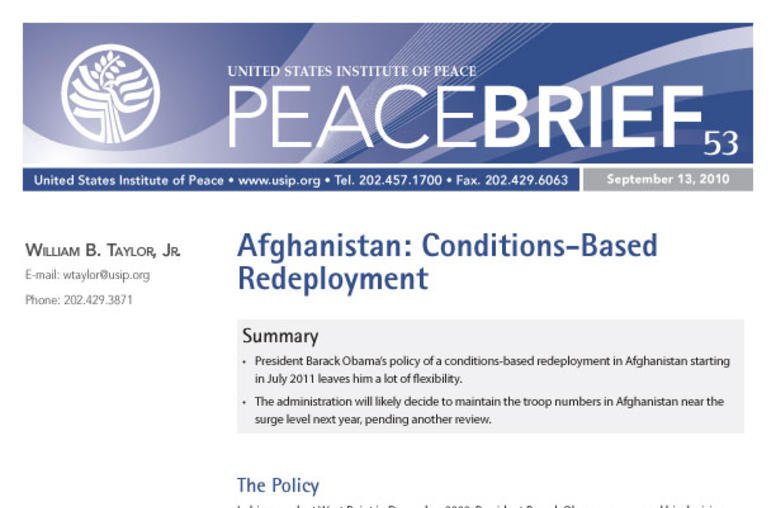
Afghanistan: Conditions-Based Redeployment
President Barack Obama’s policy of a conditions-based redeployment in Afghanistan starting in July 2011 leaves him a lot of flexibility. The administration will likely decide to maintain the troop numbers in Afghanistan near the surge level next year, pending another review.
On the Issues: What if Kabul Bank Fails?
Afghanistan’s largest commercial bank, Kabul Bank, went into turmoil after its top two directors stepped down in early September 2010 amid allegations of systemic corruption. Kabul Bank shortly thereafter froze the assets of the former chairman and former chief executive officer, as well as those of several other shareholders and major borrowers. USIP’s Raymond Gilpin provides context and offers his perspective on this crisis.
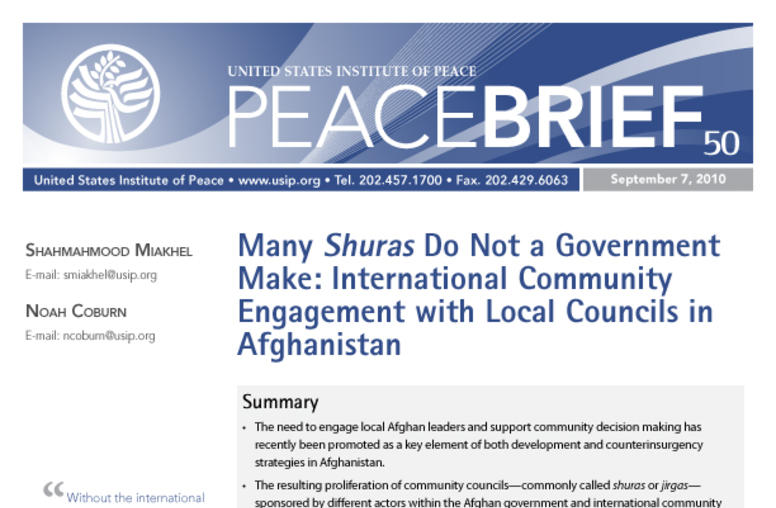
Many Shuras Do Not a Government Make: International Community Engagement with Local Councils in Afghanistan
The need to engage local Afghan leaders and support community decision making has recently been promoted as a key element of both development and counterinsurgency strategies in Afghanistan. This Peace Brief supports the attempts to create a coherent long-term goal of local governance based on legitimate local actors, most likely selected through elections.
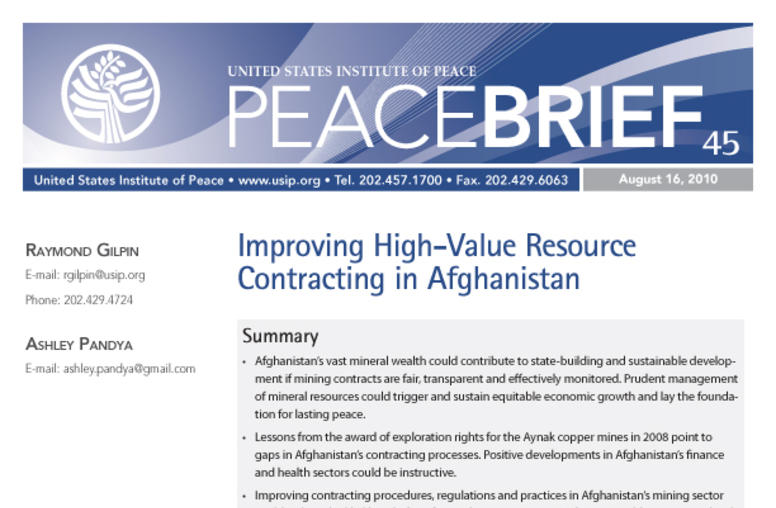
Improving High-Value Resource Contracting in Afghanistan
Afghanistan’s vast mineral wealth could contribute to state-building and sustainable development if mining contracts are fair, transparent and effectively monitored. Prudent management of mineral resources could trigger and sustain equitable economic growth and lay the foundation for lasting peace.
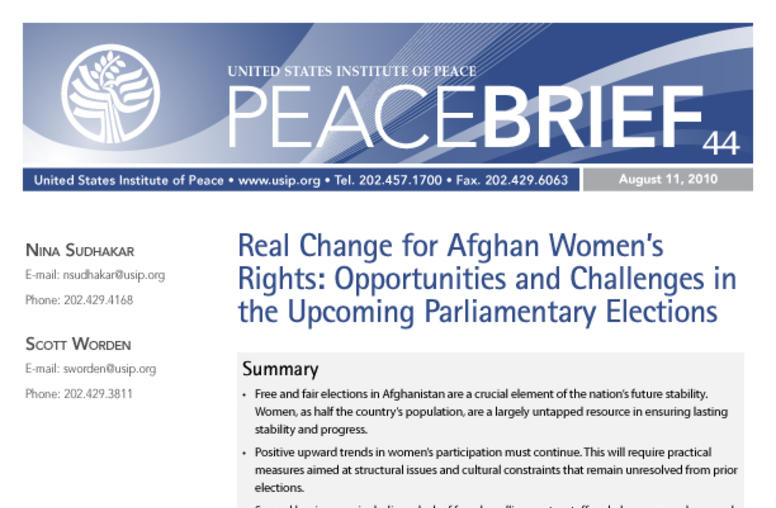
Real Change for Afghan Women's Rights: Opportunities and Challenges in the Upcoming Parliamentary Elections
This Peace Brief highlights key issues that must be resolved to ensure Afghan women’s continued political participation in the upcoming parliamentary elections on September 18, 2010 and beyond.
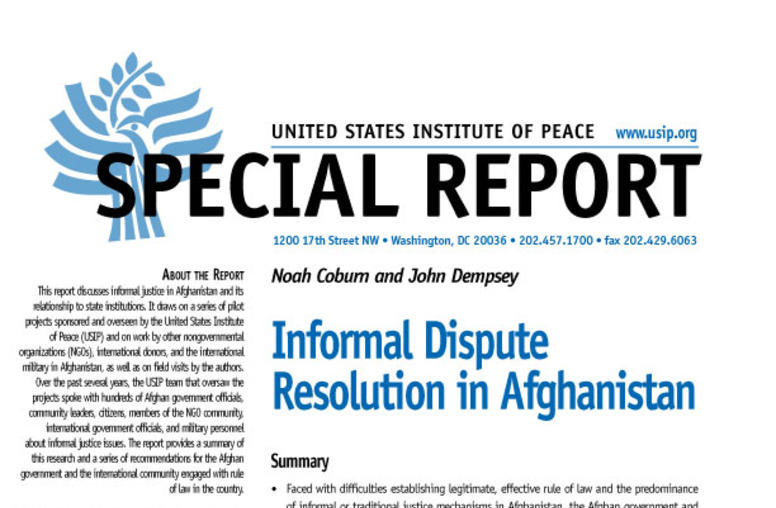
Informal Dispute Resolution in Afghanistan
This report discusses informal justice in Afghanistan and its relationship to state institutions. It draws on a series of pilot projects sponsored and overseen by the United States Institute of Peace (USIP) and on work by other nongovernmental organizations (NGOs), international donors, and the international military in Afghanistan, as well as on field visits by the authors.
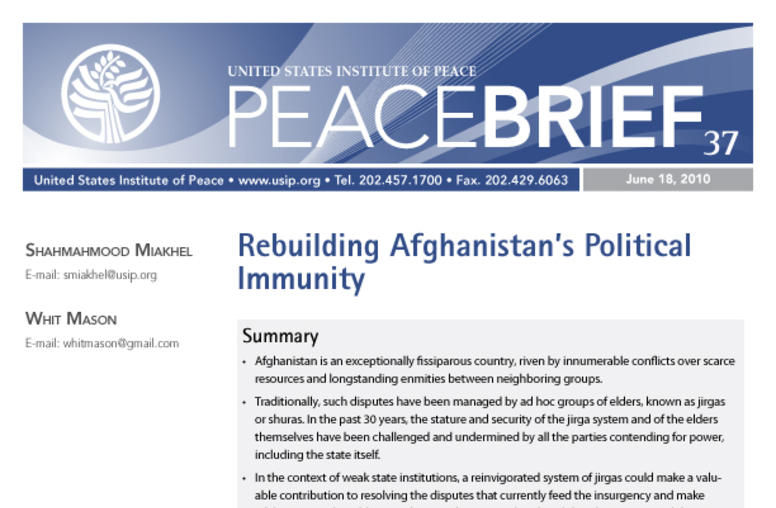
Rebuilding Afghanistan's Political Immunity
Afghanistan is an exceptionally fissiparous country, riven by innumerable conflicts over scarce resources and longstanding enmities between neighboring groups. Traditionally, such disputes have been managed by ad hoc groups of elders, known as jirgas or shuras. In the past 30 years, the stature and security of the jirga system and of the elders themselves have been challenged and undermined by all the parties contending for power, including the state itself.
Clinton, Karzai Reassure on Partnership, Clarify Steps Ahead
Secretary of State Hillary Rodham Clinton and Afghan President Hamid Karzai sat down for a conversation with USIP’s William Taylor about the current effort in Afghanistan, and concerns about the strength of the U.S.-Afghan relationship.